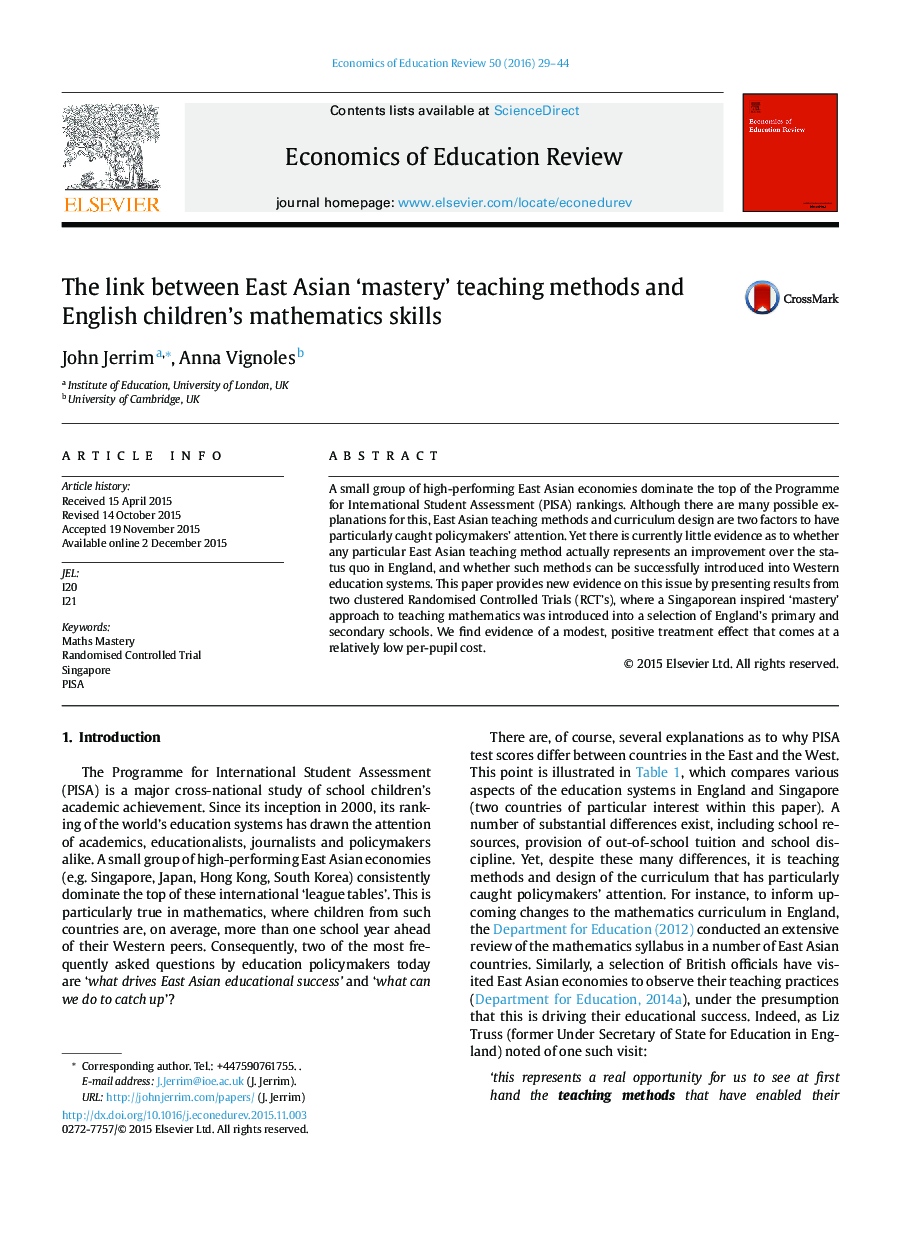| Article ID | Journal | Published Year | Pages | File Type |
|---|---|---|---|---|
| 354244 | Economics of Education Review | 2016 | 16 Pages |
•A one year treatment of the Maths Mastery programme has, on average, a small, positive impact upon children's mathematics test scores.•There is some evidence that the impact of the programme is greater in higher ‘quality’ schools.•The per-pupil financial costs of the programme are relatively low, leading to a quite favourable ‘cost-effectiveness’ ratio.
A small group of high-performing East Asian economies dominate the top of the Programme for International Student Assessment (PISA) rankings. Although there are many possible explanations for this, East Asian teaching methods and curriculum design are two factors to have particularly caught policymakers’ attention. Yet there is currently little evidence as to whether any particular East Asian teaching method actually represents an improvement over the status quo in England, and whether such methods can be successfully introduced into Western education systems. This paper provides new evidence on this issue by presenting results from two clustered Randomised Controlled Trials (RCT's), where a Singaporean inspired ‘mastery’ approach to teaching mathematics was introduced into a selection of England's primary and secondary schools. We find evidence of a modest, positive treatment effect that comes at a relatively low per-pupil cost.
